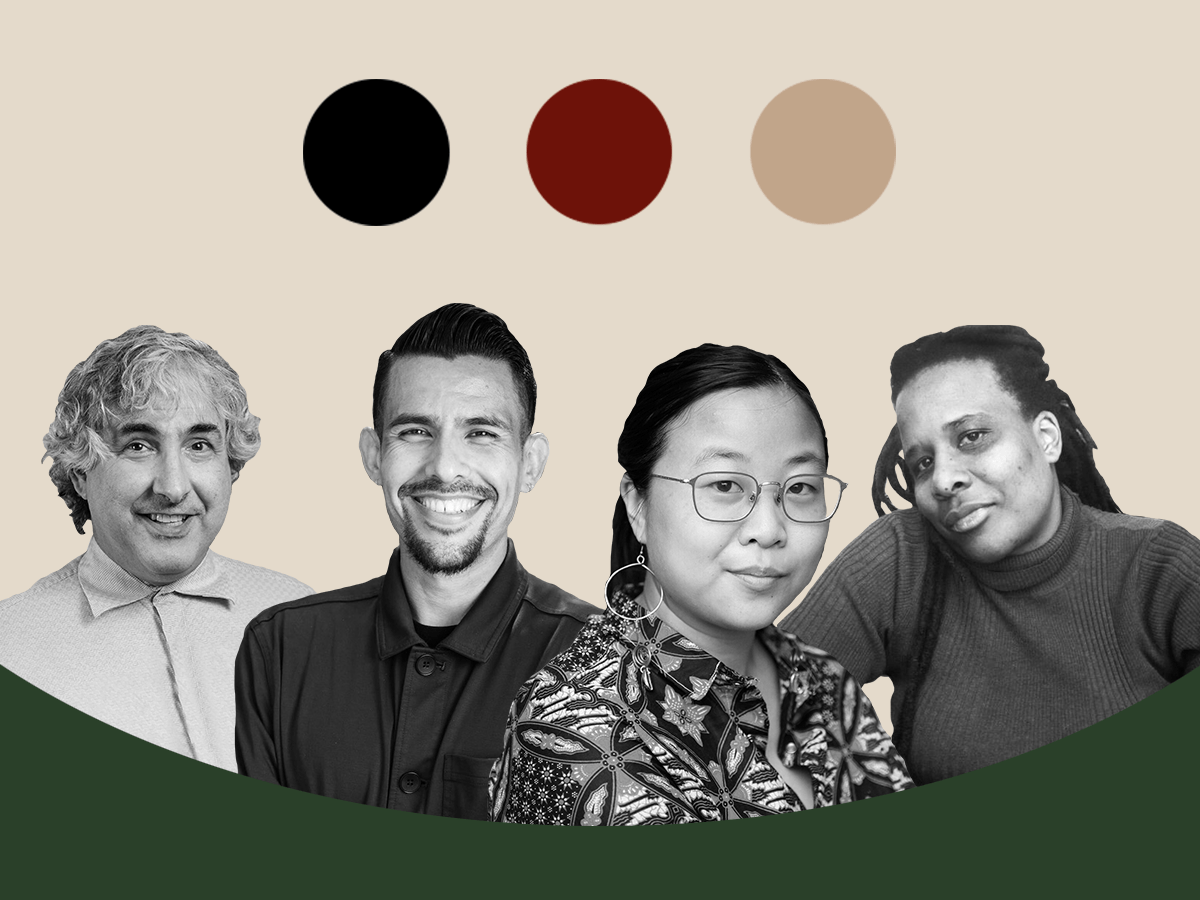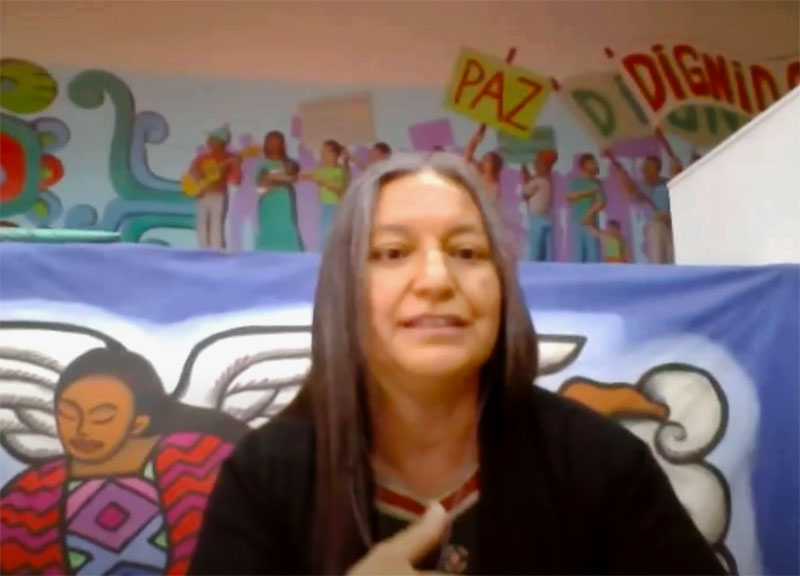
Oaxxanda: The Origin Story
In January 2020, just before the COVID-19 pandemic hit, eight Black and Brown East Oakland community members gathered on Zoom after months of discussions and talk to form a collective. The group formed to solve a problem its members otherwise must face individually: how to stay rooted in Oakland, California, as artists and culture makers—as rising rents and gentrification threaten their ability to stay. All of these folks were either born and raised in Oakland or have lived there most of their lives.
Tired of ongoing black disenfranchisement and gentrification, this community group came together in the spirit of Black and Brown power. They were made up of members from groups that were already trying to make an impact in Deep East Oakland—Repaired Nations, Black Cultural Zone, The Deep Grocery Coop, Feed the Village, Sustainable Economies Law Center—as well as unaffiliated community members who were artists, healers, organizers, activists, and entrepreneurs. At the tail end of a second Black out-migration from the Bay, the group felt the name of their collective needed to send a clear message to their families, neighbors, and future collective members: Oaxxanda.
Pronounced Oh-Kanda, Oaxxanda takes inspiration from Wakanda, a fictional country on the African continent that is the most technologically advanced society in the Marvel universe. Wakanda represents the possibility of Black sovereignty—an Afro-utopian vision for the African diaspora. Oaxxanda members fused this afro-futuristic vision onto their deep East Oakland neighborhood.
Oaxxanda co-founders Anita “Needa Bee” de asis Miralle and Tut Kingdom X shared their vision of Oaxxanda over a Zoom call this summer. Needa B says their vision of Oaxxanda is centered on “self-determination, ownership, control of one’s environment, control of one’s future …That’s what Oaxxanda is.”
Deep East Oakland has a history of neglect. Collective members say there is an abundance of talent and willingness to change conditions; however, many folks in the area haven’t had access to opportunities and investment to apply their ideas. Oaxxanda is an expansion of imagination that people from the neighborhood can create a flourishing community by investing in themselves. “They were trying to move us. We were still getting pushed out of Oakland. No, we need a safe haven! Oaxxanda! This is it!” says Tut.
Black Oakland Shrinks

The vision of Oaxxanda is grand. But within the context of what Black Oaklanders and Oaklanders of color face today, it’s a necessary dream and beacon of hope for a community being forced from their homes. Oaklandside reports that between 2010 and 2020, Oakland saw its Black population fall 14 percent.
In late 2019 through early 2020, a group of unhoused Black mothers known as Moms4Housing took over a vacant home in Oakland that fueled a new wave of housing activism in the Bay Area. The group increased awareness of the many vacant homes owned by corporations, inspiring a wave of state legislation to create more affordable housing opportunities. These women were able to leverage their message into political action.
The Moms4Housing struggle made clear that ownership is a powerful way to stay rooted. Needa B says within this current housing crisis, exacerbated by the pandemic and an end to eviction moratoriums, Oaxxanda strives to claim what they consider theirs. “With Oaxxanda, we’re reclaiming a culture that has been blocked from us, stripped from us. It’s a mindful process. We’re shifting a paradigm … [away] from being an individual and being capitalistic.”
At the heart of Oaxxanda is the desire to decommodify land, practice collective stewardship, as their ancestors had before them, and continuation of the legacy of communal care by which they already live. “I’m a product of the 90s. Crack was there, but it hadn’t deteriorated the family structure all the way complete. We still had a strong family,” shares Tut. “You know, the collective babysitting. The three families in one house. We all stayed in an apartment complex where one person cooks for the whole family. I grew up with a family that collectively took care of the youth and each other. We understood that’s what we needed to do to get by. Doing it in business is a no brainer.”
Oaxxanda members consider themselves culture bearers and artists. Needa B says, “We’re also trying to preserve the culture that we’ve been able to maintain that comes out in creative forms. As an organizer and activist, more of our work is in reaction to. Reaction to the oppression. So very few times do we get to actually build and dream what we want. This birthing is both of those things. We’re reacting to gentrification and displacement, but we’re also creating something else.”
The Struggle to be an Art Collective in Oakland

If an artist collective in Oakland gains traction and builds community, there almost always comes a point when it will face the threat of displacement. Rock Paper Scissors, a well-known arts and community hub formed in 2004, maintained a strong presence in downtown Oakland for 12 years. They helped found Oakland Art Murmur, which helped launch a cultural renaissance that ushered in mass gentrification and displacement that ultimately forced the collective to move out. In 2016, the group was displaced from its building due to continually increasing rent in what had become a bustling arts district.
Betti Ono gallery is a community art space founded by Oakland native Anyka Barber. In its 11 years, it has become a community anchor and space for Black artists to showcase culture and build Black cultural power. After eight years of uncertain tenancy, the gallery secured a long-term lease. The new lease is for five years with the option for a two-year extension. The city of Oakland is its landlord. But having the city as landlord requires patience with bureaucracy and shifting political alliances.
The Ghost Ship was an artist live/work space that had affordable rents while also maintaining space for the community to make art, perform, and host events. Just a few years before Oaxxanda was formed, the Ghost Ship went up in flames during an evening concert, killing 36 people. The tragedy made clear the compromises artists often must make to live in Oakland—living in dilapidated buildings not zoned for residential use and poorly maintained by unethical, absentee landlords.
Sign up for our free newsletters
Subscribe to NPQ's newsletters to have our top stories delivered directly to your inbox.
By signing up, you agree to our privacy policy and terms of use, and to receive messages from NPQ and our partners.
Oaxxanda collective members have studied this history. That’s why they are starting with ownership first.
Who is Oaxxanda?
Tut was born and raised in Oakland. He’s the last of eight kids. He was emancipated at 14 because he didn’t feel safe at home. He has been an organizer for over 10 years, working with Walmart and fast-food workers across the country to organize for better wages and working conditions. He resonates with the situation of unhoused folks and wants to help create a feeling of safety.
“I feel on the forefront of bringing safety back to our community, to the workplace, to the environment. It’s hard to find ownership of anything in the ghetto. We’re bringing Sankofa. We are bringing the principles of cooperation, collaboration, collective ownership, patronage. I’ve seen the dangers of not working collectively.” All eight members of the collective abide by these principles.
Along with the work he’s been doing to develop Oaxxanda, Tut works with Repaired Nations, an Oakland-based organization focusing on building wealth in Black communities through cooperative development training. “Coming now with this collective organization Oaxxanda, we’re working to develop a cooperative hub that has cooperative infrastructure that people can come touch, feel, support,” Tut explains. Tut’s personal business venture, Good JuJu Good Vibes, focuses on providing wellness practices, classes, and consultations.
Needa B has lived in the Bay Area since she was 19 years old. She’s a modern-day renaissance woman, pursuing art, education, activism, and a Filipino food business. “I wear many hats. One of them is with The Village in Oakland, which is a grassroots organization led by unhoused folks. I’m currently unhoused myself. Housing insecure.”
When the pandemic hit, Needa B found herself working as an educator to serve the needs of her community’s children whose education was being affected by school closures. “Education is the work that gives me life.” Having a community hub like Oaxxanda provides a stable, safe space where Needa B can live, teach, and make art.
Oaxxanda is Control of One’s Future

Oaxxanda members say that when their friends and neighbors hear about the project, they support the idea right away. But it has been a challenge to get people involved in the day-to-day management of the collective. The nation’s political and economic system, Needa B notes, elevates the individual and discourages people coming together.
Overcoming this is not easy. “It’s a vulnerability of trusting people with what you have and letting go of ego…so there can be a collective truth. It is by design that we don’t know how to get down in our Indigenous ways. All the more reason why this work is so important,” shares Needa B. Oaxxanda members believe that community governance of the future Oaxxanda live/work space goes hand in hand with collective ownership.
Oaxxanda members are currently looking at three potential properties to situate their artist live/work space. One is on Fairfax Avenue in East Oakland. Another is on Aileen Street in North Oakland. The third property is on South 23rd street in Richmond, about 10 miles north of the city.
The collective has community support but is seeking financial support to purchase a building. Needa B shares its vision of who might support the venture: “We need investors with different levels of membership. If people feel like they’re not part of our demographic—colonial subjects of the empire—they should consider reparations.… We redistribute the wealth they obtained. That could look like land, money, resources.”
Oaxxanda collective was granted $300,000 from the Kataly Foundation to put towards its property purchase. Members project that the property’s cost will likely be between $850,000 and $1.8 million, considering space and zoning needs it has identified and the high real estate costs that are endemic to the entire San Francisco Bay Area.
To close the gap, it hopes to tap additional foundation support, loans, community investment, and individual donations. Needa B believes people of privilege and means should “invest with no strings attached. That’s what equity in action looks like. When we redistribute wealth, that impacts every issue that we face in this country.”
Black and Indigenous communities, she notes, “aren’t allowed to have vibrant economies. Until that piece is addressed through action and redistribution, then equity is just a word we’re throwing around.”










